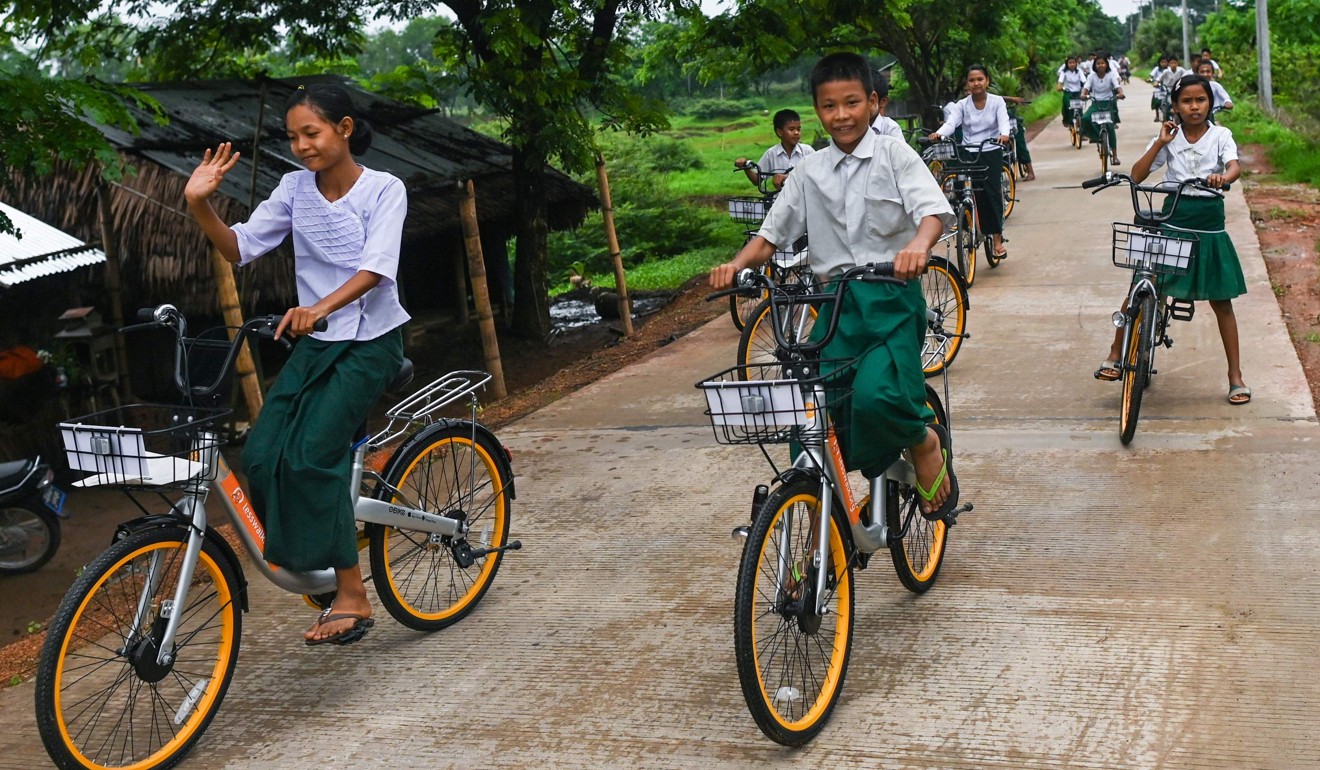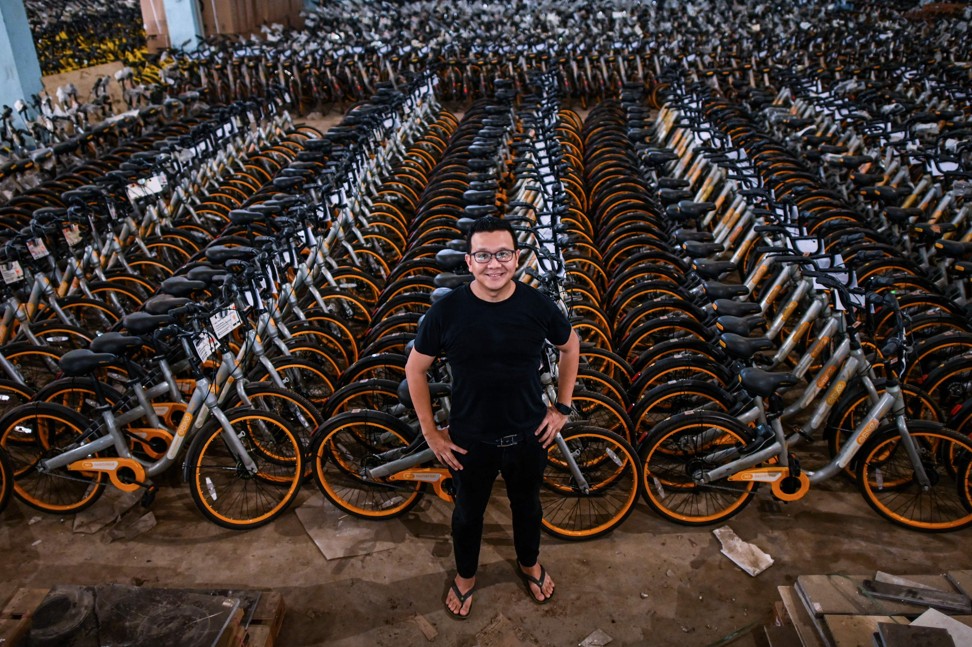
Myanmar schoolchildren breathe new life into disused bicycles from oBike, Ofo and Mobike languishing in ‘graveyards’
- Thousands of bicycles that lay in ‘graveyards’ after bike-sharing companies pulled out from Singapore and Malaysia are now being used by Myanmar children to go to school
- Some 55 per cent of children in Myanmar live in poverty, while half of 17-year-olds enter adulthood with little or no education, according to Unicef estimates
“I’ll have more time to study and play with friends,” she said, as she excitedly wheels away her new bicycle at Nhaw Kone Village school near Yangon.
The initiative, called “Lesswalk”, is the brainchild of Mandalay entrepreneur Mike Than Tun Win.
He grew up and was educated in Singapore before returning to Myanmar eight years ago with a business degree.
Drone photography captures ‘bicycle graveyards’ as China’s bike-sharing bubble bursts
“I saw students walking for many hours to get to school and I felt really sorry for them,” said the 33-year-old.
Unicef estimates that 55 per cent of children in Myanmar live in poverty, while half of 17-year-olds enter adulthood with little or no education.
So when Mike heard that bike-sharing companies oBike, Ofo and Mobike had pulled out from Singapore and Malaysia, leaving thousands of bicycles in “graveyards”, he grabbed his chance.
The tech investor bought 10,000 bikes earlier this year and shipped them to Myanmar.
They might not be worth anything in Singapore, but they’re valuable in a poorer country.
After exchanging the bike-share lock for a seat on the back, he is now starting to hand out the bright orange and yellow bicycles.
He hopes they will help keep more kids in school for longer, giving them an education so they can “escape from poverty”.

Each cycle cost him just US$35, including shipping and distribution, and he footed half the bill, with the other half coming from sponsors.
Yangon is Lesswalk’s first stop before Mike rolls out the scheme in Mandalay and Sagaing regions later this month.
Children aged 13 and 16 living more than 2km from school will be at the front of the queue.

“Most parents here are poor,” says Ni Ni Win, 55, head teacher of Thae Su Wai’s school. “Many children don’t even have umbrellas – they just use pieces of plastic to cover them when it rains.”
Mike says this is just the start – the aim is to keep up momentum and hand out a total of 100,000 bikes over five years.
“They might not be worth anything in Singapore, but they’re valuable in a poorer country,” he said.

.png?itok=arIb17P0)

